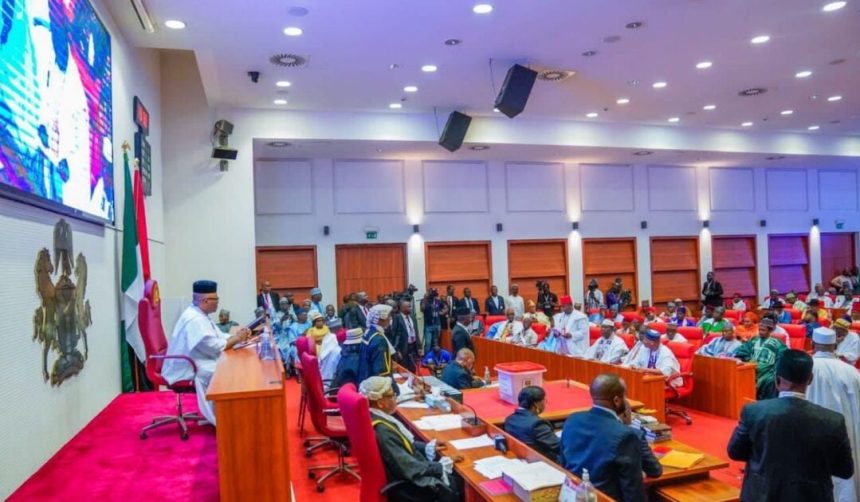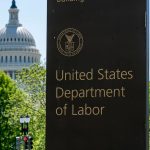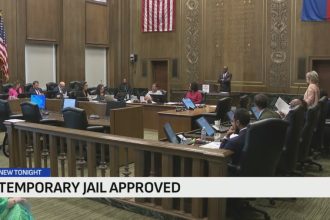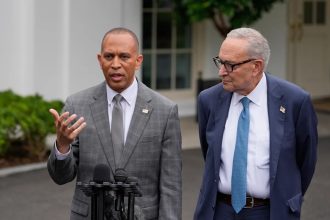The Senate on Wednesday waded into the longstanding leadership crisis at the Equipment Leasing Registration Authority, reopening investigations into the alleged unlawful removal of the agency’s former Acting Chief Executive Officer, Saidu Njidda.
The crisis, which has festered since mid-2023, began after the Federal Government dissolved the governing boards of ministries, departments, and agencies shortly after President Bola Tinubu assumed office.
The dissolution, announced through a circular from the Office of the Secretary to the Government of the Federation, plunged ELRA into a prolonged administrative vacuum.
The absence of a clearly communicated transition or disengagement process deepened tension within ELRA, leading to accusations of arbitrary decision-making, stalled operations, and a spate of petitions from aggrieved stakeholders.
It was against this backdrop that the Northern Alliance Committee petitioned the Senate, alleging that Njidda—who had served as Executive Chairman and Acting CEO—was removed without adherence to the ELRA Act and relevant public service rules.
At Wednesday’s sitting of the Senate Committee on Ethics, Code of Conduct and Public Petitions, chaired by Senator Neda Imasuen, the committee reviewed the petition urging lawmakers to intervene and direct Njidda’s reinstatement pending amendments to the ELRA Act.
NAC representative, Prof. Ibrahim Madugu, argued that the former CEO’s removal lacked legitimacy.
He said, “Njidda, who previously served as Executive Chairman and Acting CEO, was removed unceremoniously and unlawfully.
“This development contradicted clear provisions of the ELRA Act and violated the Code of Conduct Bureau Act, the Pension Reform Act, and other public service rules.
“Without a formal disengagement letter, a public officer cannot be deemed to have exited service lawfully,” he added, noting that such omissions have serious implications for the affected officer.
Madugu further criticised the alleged appointment of a new Registrar without compliance with Public Service Rule 17-0201, calling it a “blatant breach” of due process.
He referenced President Bola Tinubu’s recent comments at a judicial conference, insisting that reforms cannot succeed where integrity and administrative order are compromised.
He urged lawmakers to ensure strict adherence to Section 8(a) of the ELRA Act and cautioned that supervisory ministries must not turn administrative oversight into punitive action against law-abiding officers.
But the agency refuted all allegations raised by the petitioners.
Representing the ELRA, Oluwasogo Adeuja insisted that Njidda ceased to be CEO the moment the board under which he served was dissolved.
He maintained, “Njidda’s tenure effectively ended when the board under which he served was dissolved on 19 June 2023 via a circular from the Office of the Secretary to the Government of the Federation.”
Adeuja argued that the dissolution rendered all subsequent actions of the former board invalid, a position he said was reinforced by the legal opinion of the Attorney-General of the Federation.
He added that a new board was only inaugurated in October 2024, after which President Tinubu appointed a substantive Registrar “in line with executive powers.”
He also disclosed that an audit by the Auditor-General had raised concerns that Njidda made financial payments to himself while in office, adding that a formal demand for refund had been issued.
According to him, only the President is empowered to appoint or remove the ELRA Registrar or CEO.
The Northern Alliance Committee, however, said they only approached the National Assembly after attempts to resolve the matter with executive authorities proved unsuccessful.
They stressed that the petition was not an attempt to challenge presidential authority but a pursuit of fairness, transparency and due process.
Committee chairman Imasuen commended all parties for conducting themselves with decorum despite heated exchanges. He directed the Minister of Finance to convene a stakeholders’ meeting to resolve the dispute internally.
The Senate panel adjourned the matter for one month to allow room for reconciliation, warning that a full-scale review would be launched if the parties fail to reach an agreement.








